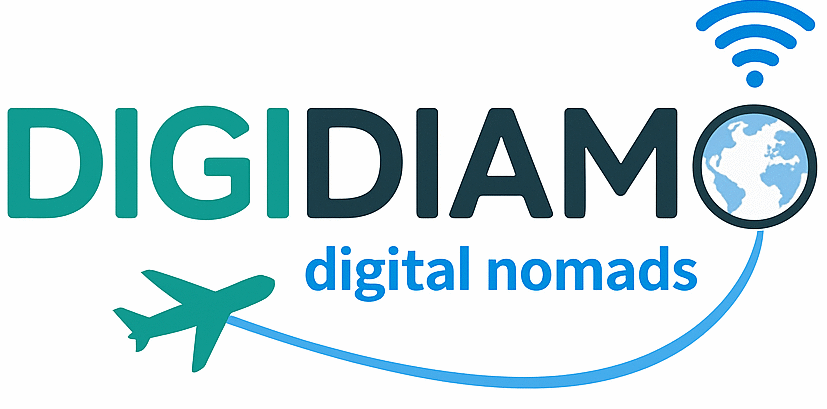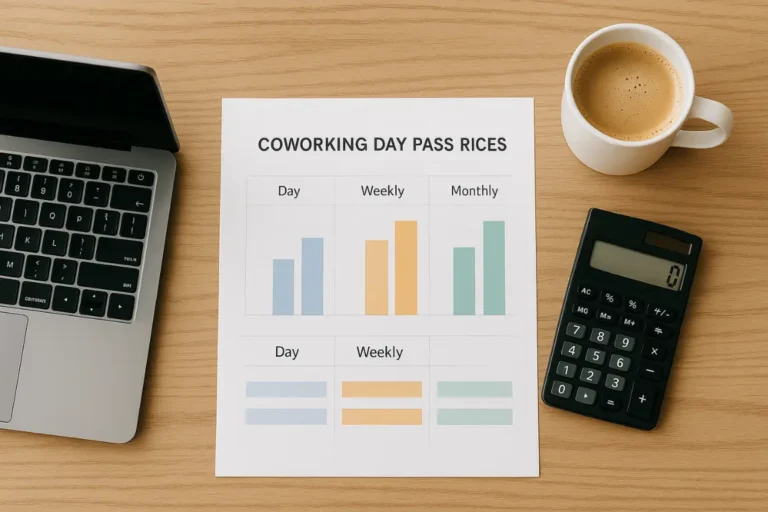Top countries offering digital nomad Visas in 2025
If you’re anything like me, your ideal workspace is a quiet beach café, a mountain village or a sunny balcony overlooking the sea. The freedom to work from anywhere is one of the biggest wins of this lifestyle. But the legal part visas, permits, rules can feel overwhelming. Luckily, a growing number of countries are making it easier by offering special digital nomad visas.
These visas allow remote workers to live abroad legally without pretending to be tourists or sneaking into short-term loopholes. I’ve done the digging, and in this post, I’m walking you through some of the most attractive countries offering digital nomad visas in 2025. A full guide to global digital nomad visas will be available soon for those just starting out.
Before choosing a destination, it helps to understand what digital nomad visas are and how they actually work in 2025.

Portugal
Portugal remains a top choice in Europe. The country offers a digital nomad visa with a relatively smooth application process. You need to prove a monthly income of around €3,040, which is achievable for many freelancers and remote employees.
Lisbon and Porto are popular hubs, but if you want something quieter and cheaper, the Algarve or even Madeira offer solid alternatives. The lifestyle is laid-back, the food is good, and the local population is generally friendly toward remote workers.
Portugal also offers a path to residency, which is appealing if you’re thinking long term.
Spain
Spain launched its digital nomad visa in 2023, and it’s now gaining traction. You’ll need to show an income of about €2,500 per month and have a contract with a company outside Spain or proof of freelance work.
Barcelona and Valencia are obvious favorites, but I’ve met nomads who swear by lesser-known cities like Malaga or Girona for a better quality of life and lower rent.
One advantage is access to Spain’s public healthcare once you’re in the system. And let’s be honest Spanish weather and tapas don’t hurt either.
Estonia
Estonia was one of the first European countries to create a visa specifically for digital nomads. It’s aimed at non-EU citizens who want to stay for up to a year.
The income requirement is €3,500 per month, and the application process is transparent. The country also has strong digital infrastructure and a startup-friendly ecosystem.
Tallinn is modern and full of coworking spaces, but the real charm lies in Estonia’s forests, islands, and calm pace. If you’re looking to disconnect without losing productivity, it’s worth a look.
Croatia
Croatia’s digital nomad visa has made headlines thanks to its relatively low cost of living and stunning coastline. The income requirement is around €2,300 per month, and you can apply online.
You’ll need to show proof of accommodation and health insurance, but once you’re in, you’re free to enjoy cities like Split, Dubrovnik, or the more local vibe of Zadar.
Croatia has also built a good community around digital nomads, with meetups, coworking hubs, and even nomad-friendly events throughout the year.
Mexico
If you prefer Latin America, Mexico is one of the most accessible countries for remote workers. While it doesn’t have a visa labeled “digital nomad,” its temporary resident visa works similarly and allows stays up to four years.
The income threshold is around $2,600 per month, and it can be based on savings or income. Cities like Mexico City, Oaxaca, and Playa del Carmen have thriving nomad scenes.
It’s also a practical base for those with US clients due to time zone overlap.
Costa Rica
Costa Rica launched its digital nomad visa officially in 2022. You’ll need to prove $3,000/month income, or $4,000 if you’re bringing dependents. The visa is good for one year and renewable.
You get the added benefit of tax exemptions on foreign income and access to one of the most biodiverse environments in the world.
Tamarindo, Santa Teresa, and San José all offer good coworking options. If you’re into surfing or hiking, you’ll probably feel at home.
Georgia
Not the US state the country in the Caucasus. Georgia allows remote workers to stay up to one year visa-free for many nationalities, but also offers a more official “Remotely from Georgia” permit.
The income requirement is around $2,000/month, and the cost of living is very low. Tbilisi has a vibrant café scene, coworking spaces, and a growing expat community.
The real draw is the combination of mountains, culture, and hospitality. Georgia feels different more raw, more open and that’s what makes it exciting.
United Arab Emirates (UAE)
For a totally different lifestyle, Dubai offers a one-year digital nomad visa. You need to earn at least $5,000/month and have health insurance coverage.
While the cost of living is higher, Dubai gives you access to a unique mix of modern infrastructure, international business networks, and sunny weather all year.
It’s not everyone’s cup of tea, but if you’re client-facing and need a global hub with serious bandwidth, it might be a match.
Final thoughts
Choosing where to live as a digital nomad isn’t just about palm trees and fast Wi-Fi. It’s about how easy it is to stay legally, how much your income stretches, and whether you actually enjoy your environment.
Each country above has its pros and trade-offs, but the good news is, you have options. A more detailed step-by-step guide on how to apply will be published shortly. That should help you move from dream to departure.






